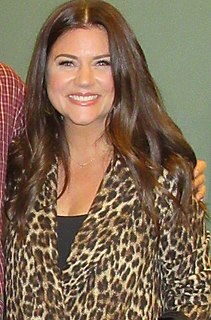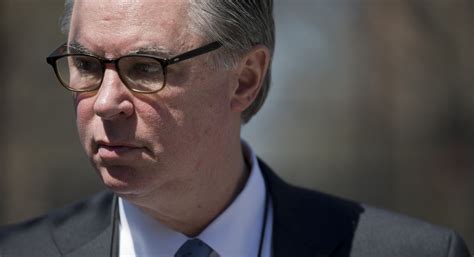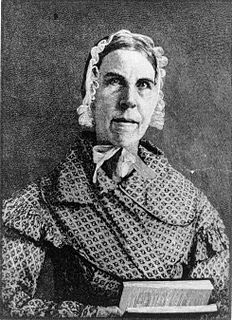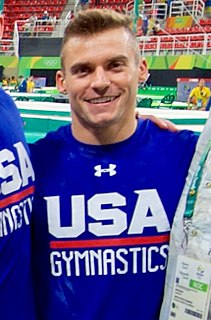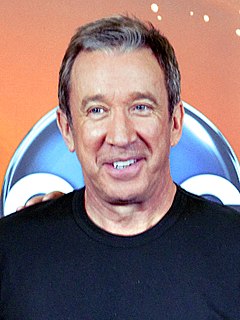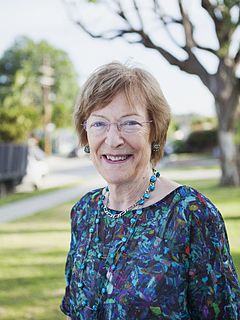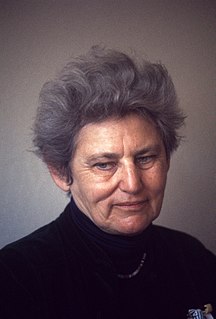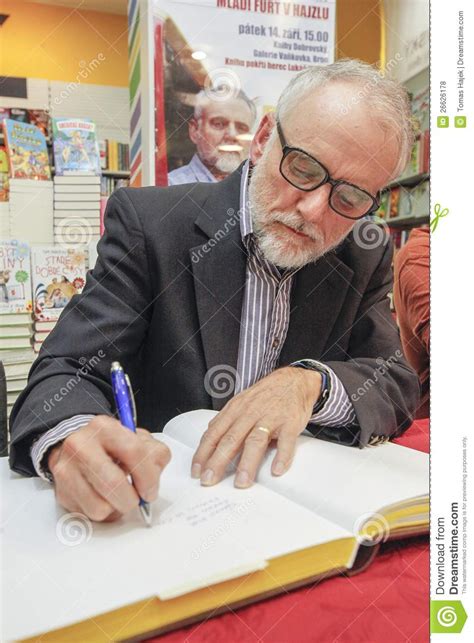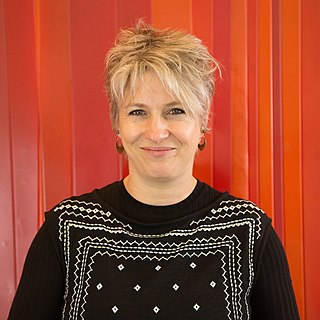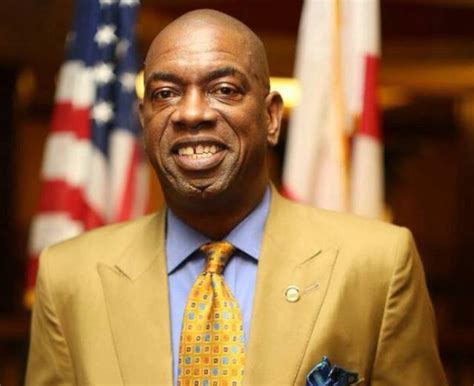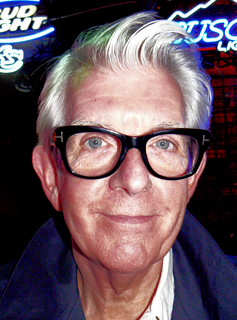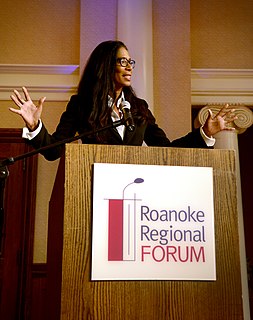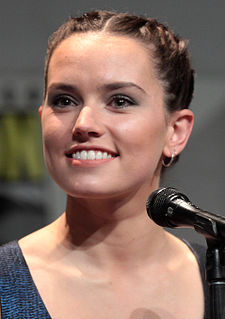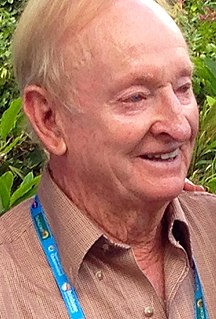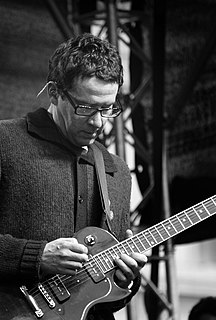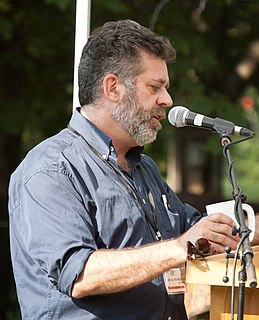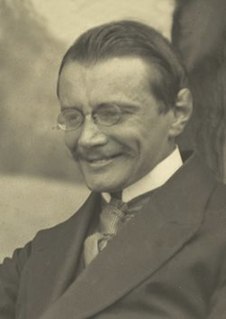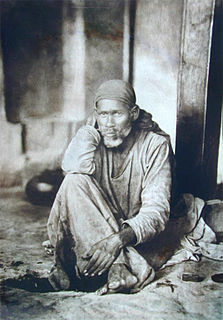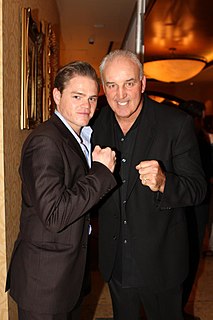Top 1200 Early Life Quotes & Sayings - Page 19
Explore popular Early Life quotes.
Last updated on November 16, 2024.
I had a kind of tough early life. I had a tough time in school. I had an unsympathetic family in terms of what I was trying to do. I decided that my family situation was simply hopeless. I kinda bailed out, and my brother and sister didn't. I failed at marriage, which I'm very upset with myself over.
Many a woman shudders... at the terrible eclipse of those intellectual powers which in early life seemed prophetic of usefulness and happiness, hence the army of martyrs among our married and unmarried women who, not having cultivated a taste for science, art or literature, form a corps of nervous patients who make fortunes for agreeable physicians.
In my twenties, I thought it was getting a sitcom. Then I got a sitcom pilot in my early thirties, and realized I didn't want it. It was a rude awakening. When it wasn't picked up, I was crushed, but then in retrospect I've made two films and produced three one-man shows since then. It's the luckiest thing that happened in my life.
I regard the effort to introduce women into colleges for young men as very undesirable, and for many reasons. That the two sexes should be united, both as teachers and pupils, in the same institution seems very desirable, but rarely in early life by a method that removes them from parental watch and care, and the protecting influences of a home.
I look at it this way: How much of the day are you awake? You think, "I've gotta get that dry cleaning, I gotta get this going, and this, and this, and this." And all of a sudden it's dinnertime. And then there's a moment of connection with your spouse or your friends. Then you read and go to bed. Wake up and then it's the same all over. You're not awake, you're not living, you're not experiencing. We start early medicating ourselves. We start kids early, on TV and video games and so on.
Forgiveness is a strange thing. It can sometimes be easier to forgive our enemies than our friends. It can be hardest of all to forgive people we love. Like all of life's important coping skills, the ability to forgive and the capacity to let go of resentments most likely take root very early in our lives.
A whole range of activities remained largely unregulated, spontaneously generating separate forms of organisation, and existing independently of any consecrated 'official' To overlook the extent of private initiative would be to ignore a major impulse to early Christian expansion. In homes, whole families adopted a style of life modelled on the Apostles.
When I had a baby, I didn't leave the second floor for six months. I nursed my babies. I was a full-time homemaker. I taught them all how to read before I let them go to school. So I gave them that care in the early life that somehow feminists have been led to believe is demeaning and is not worth the time of an educated woman.
The most important difference between these early American families and our own is that early families constituted economic unitsin which all members, from young children on up, played important productive roles within the household. The prosperity of the whole family depended on how well husband, wife, and children could manage and cultivate the land. Children were essential to this family enterprise from age six or so until their twenties, when they left home.
It is the most powerful submission in the sport. It is a beautiful thing. You're holding them into you, their back is on you, and you are basically choking them gradually like a boa constrictor and once you've got them, the pressure goes on and they have to submit or they are going to stop breathing. It happened to me early in my career, and I panicked, and gave in, I tapped out too early. I learned a lot from that. I learned from it, learned how to do the move better, learned how to avoid it being done to me.
Compared to men writers of like distinction and years of life, few women writers have had lives of unbroken productivity, or leave behind a 'body of work.' Early beginnings, then silence; or clogged late ones (foreground silences); long periods between books (hidden silences); characterize most of us.
I take it, then, Vijay, you are still a virgin?'Yes, and I find it extremely galling. When Gandhi was my age he had already been married three years.'No wonder Gandhi turned out to be a great man. When you get your love life nailed down that early, think of all the time it frees up to devote to Great Ideas.
I have a personal Twitter for band purposes, but I don't use social media a lot. I fall in a weird age gap. I was on band message boards when I was 16, but I was on the early curve of Facebook. I did it for work when I worked in media, and I did it for the band, but I can't relate to the idea that you live your life online.
"Plaza de la Soledad" is a documentary about Carmen, Lety, Raquel and Esther, four strong women - middle-aged and older - who want to break a vicious circle that began with abuse and abandonment suffered from an early age. They simply want to have a better life. The film follows their quest to find true love and their capacity to transform themselves.
... goodness is of a modest nature, easily discouraged, and when much elbowed in early life by unabashed vices, is apt to retire into extreme privacy, so that it is more easily believed in by those who construct a selfish old gentleman theoretically, than by those who form the narrower judgments based on his personal acquaintance.
I am grateful that early in my life I was blessed with a simple faith that Joseph Smith was a prophet of God, that he saw God the Father and His Son, Jesus Christ, in a vision. He translated the Book of Mormon by the gift and power of God. That testimony has been confirmed to me over and over again.
The early pioneers of both wellness and network marketing were motivated by the sense that it was possible to create a better life than the conventional routes offered - better personal health and better economic health, respectively. Now the 'alternatives' of yesterday have become the economic powerhouses of today and tomorrow.
In your 20s, crises tend to be about whether you are making the correct decisions for the rest of your life, namely in your job and relationship. In your 30s, work-related issues and break-ups feature prominently. In your 40s, for women bereavement is often an issue. For men, it is still to do with their job but it has moved to "Holy crap, I've got a lot to do". In your 50s, you get features of both early and later life crises - bereavement and ill health. And that continues in your 60s, with retirement-related issues and heightened awareness of mortality.
And now she was back in the world, not one she could make, but the one that had made her, and she felt herself shrinking under the early evening sky. She was weary of being outdoors, but she was not ready to go in. Was that really all there was in life, indoors or out? Wasn't there somewhere else for people to go?
It was the last day of the shoot in Bangalore. An early morning shoot. I sat in the car. A milk truck was coming from the wrong side and it rammed into my car. The glass pieces came like bullets into my face. I was preparing for a life without cinema. I was learning how to cope up with it. Anything that happened post that was just God's gift.
I realized sometime in the early '80s that if I didn't do something - like planning for the future in a way, a kind of pension or something - that if I didn't do something there and then, I was going to be condemned to forever present my three years as a pop star, condensed, as a stage act for the rest of my life. Because that's normally what happens to people in the pop business.
The genius of American culture and its integrity comes from fidelity to the light. Plain as day, we say. Happy as the day is long. Early to bed, early to rise. American virtues are daylight virtues: honesty, integrity, plain speech. We say yes when we mean yes and no when we mean no, and all else comes from the evil one. America presumes innocence and even the right to happiness.
Rightfully given near-deity status in the early days of industrial America, the J.P. Morgans, Rockefellers, Carnegies, and Vanderbilts of the world not only ran our country, they were also revered - and often despised - as larger-than-life personalities who could perform feats mere mortals could only dream of.
Being South Asian in the U.K. is like being Latino in the U.S., I would guess. It's a bit more hood. You see things; things happen. I was bouncing between worlds. You're acting from a very early age, when you have to code-switch like that. I'm a hybrid, a mongrel. I think many people live that life.
I think the music that's part of your heritage is what you spend a lot of your early life rejecting. The very idea of folk music would break me out in hives until I was about 28. But I think it's nice when you eventually do come back to it. It's like coming home, and you realize it wasn't so bad after all.
Staying interested in a match is a lot harder than many people think. Throughout my career, I've always had trouble in the early rounds of a tournament mainly because it was hard for me to psychologically get up until I got to the quarters or the semis. What happened a lot of times is that I would fall behind early, maybe even lose the first couple of sets in a five-set match and then begin to concentrate. Still it wasn't something I could control from the start.
In the early days I'd be slaving over a mixing desk. I'm not a recording engineer but I used to mix the record. We used to do it all by ourselves. I just don't really want to do it anymore. I want somebody to do it for me. I want to concentrate on other things. That's been a big change, a learning curve. But no regrets, it's all part of life's rich tapestry.
In a process that had begun in the 1980s and suddenly accelerated in the early 2000s ... [t]he peaks of great wealth grew higher, rising up beyond the clouds, while the valleys of poverty sank lower into perpetual shadow. The once broad plateau of the middle class eroded away into a narrow ledge, with the white-knuckled occupants holding on for dear life.
As a non-western artist, you have to ask yourself a question fairly early in your life: do I want to become a bridge maker, do I want my culture to be understood by the west? I have no intentions of doing such things. I'm fine being a little strange to a non-western audience. It doesn't bother me if my book doesn't change a generation of American readers.
It's not easy to diagnose because depending where the endometrial deposits are, the symptoms can be quite different. It's an unrecognized problem among teenage girls, and it's something that every young woman who has painful menstruation should be aware of... It's a condition that is curable if it's caught early. If not, if it's allowed to run on, it can cause infertility, and it can really, really mess up your life.
We frequently fall into error and folly, not because the true principles of action are not known, but because for a time they are not remembered; he may, therefore, justly be numbered among the benefactors of mankind who contracts the great rules of life into short sentences that may early be impressed on the memory, and taught by frequent recollection to occur habitually to the mind.
My parents put me in the water very early, and also had me skiing at a very early age. They put me on skis when I was one and a half. I was fortunate to have parents who understood the importance of exposing their kids to different sports, different cultures and different activities in order to discover what we liked and what we didn't like. They didn't push us, they just gave us many things to choose from.
As early as 1776, [John Adams] expressed his doubts about America's capacity for virtue. "I have seen all along my Life, Such Selfishness, and Littleness even in New England, that I sometimes tremble to think that, altho We are engaged in the best Cause that ever employed the Human Heart, yet the Prospect of success is doubtfull not for Want of Power or of Wisdom, but of Virtue."
The natural world around us shows the way to relief. All of life is maintained by the sun, by the air, by water, by the earth and its resources. And to whom was the sun given? To everyone. If there is any one thing that people do have in common, it is the gift of sunlight. But as the early Christians said, "If the sun were not hung so high, someone would have claimed it long ago."
Nobody told me there was any idea for a sequel to 'The Exorcist.' But my agent called me to tell me they were going to do it, and there was a part for me. I said, 'But I died in the first film.' 'Well,' he told me, 'this is from the early days of Father Merrin's life.' I told him I just didn't want to do it again.
I retired when I was 30, with all my marbles and a few bucks. But a lot of guys leave boxing penniless with no skills. Men in their 30s and early 40s, old for boxing, young in life, but also old in the job market if you're just getting started with no education. These guys need someone in their corner.
My primary early interest was in marketing and my aim was to improve its theories, methods and tools. Early on I pressed companies to adopt a consumer orientation and to be in the value creation business. I didn't pay much attention to the social responsibilities of business until later. Now I am pressing companies to address the triple bottom line: people, the planet, and profits. I found that companies were too much into short term profit maximization and they needed to invest more in sustainability thinking.
I went public with the alcoholism, very early on... the early '70s. Mercedes McCambridge, the actress, I think was the first recognizable person that went before Congress and talked about it, and I thought that was a good idea, to take some of the stigma away from it and say "Normal, average people can fall prey to it." So it's been public for me. I did a movie about an alcoholic. And today, you're nobody unless you've been to rehab. It seems like everybody has some kind of an addiction.
Early in life, the world divides crudely into those who have had sex and those who haven't. Later, into those who have known love, and those who haven't. Later still - at least, if we are lucky (or, on the other hand, unlucky) - it divides into those who have endured grief, and those who haven't. These divisions are absolute; they are tropics we cross.


